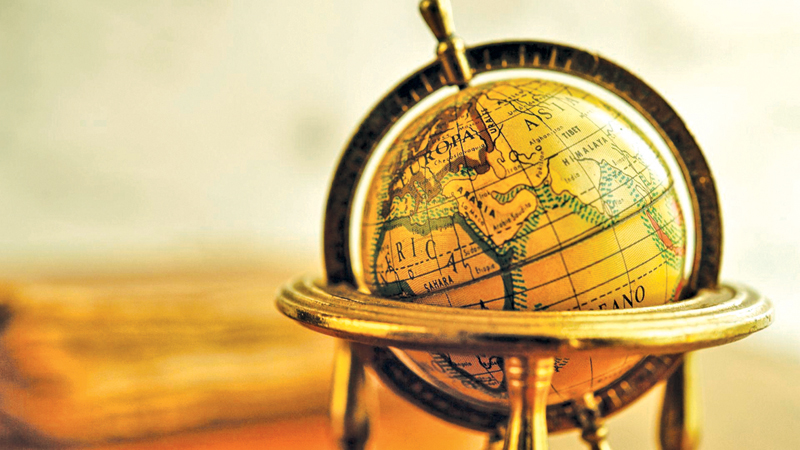History is more than a collection of dates and events. It is the story of humanity, a reflection of our shared experiences, our struggles, our triumphs, and the lessons we’ve learned along the way. In an increasingly interconnected world, the study of world histories has become more important than ever. Understanding the past of not just one nation but many allows individuals to broaden their perspectives, appreciate the complexity of global affairs, and foster a sense of global citizenship. This article explores the key values gained from studying world histories.
Studying world histories provides invaluable insights into the nature of humanity. By examining the stories of different cultures, individuals gain an understanding of how humans have reacted to challenges over time. What drives human actions, what causes societies to rise or fall, and how do individuals respond to adversity? These are questions that transcend borders.
Take the fall of ancient civilisations, for example. Whether it’s the Roman Empire, the Mayans, or the Indus Valley, these societies once flourished, only to decline due to a mix of internal and external factors. Understanding these dynamics can inform contemporary discussions about governance, sustainability, and resilience. More importantly, these lessons teach that human success and failure are often not isolated, but rather part of broader global trends.
Encouraging empathy
One of the most powerful values of studying world histories is the empathy it fosters. When individuals study the history of a culture different from their own, they gain a deeper appreciation of that culture’s struggles, triumphs, and values. This understanding helps break down stereotypes and prejudices that often arise from ignorance.
For example, learning about the history of African empires like Mali or Songhai challenges the narrative of Africa as a monolithic, undeveloped continent. Similarly, studying the rich history of the Ottoman Empire provides insight into the complexities of the Middle East, beyond modern-day conflicts. These perspectives encourage individuals to approach global issues with more understanding, patience, and sensitivity.
The study of history is not about memorising facts but about engaging in critical analysis. Historians examine sources, assess the validity of evidence, and interpret the past in ways that can inform present and future decisions. This process of analysis builds critical thinking skills that are applicable in nearly every field, from politics to business to the sciences.
World history, in particular, presents complex narratives that require deeper investigation. For instance, the causes of World War I are not simply about the assassination of Archduke Franz Ferdinand but involve a web of alliances, economic factors, and long-standing rivalries between nations. Understanding such complexities helps individuals learn how to dissect multifaceted problems in other areas of life.
Many of the challenges we face today are deeply rooted in historical events. Whether it’s international conflicts, economic disparities, or cultural tensions, history often holds the key to understanding the roots of these issues. For example, the ongoing conflicts in the Middle East cannot be fully understood without examining the impact of colonialism, the Sykes-Picot Agreement, and the Cold War.
Studying world history enables individuals to see the connections between past and present, and it offers context for why certain problems persist. For instance, issues of racial inequality in countries like the United States have deep historical roots dating back to the transatlantic slave trade and the institutionalisation of segregation. By understanding these origins, individuals can better engage in meaningful discussions on how to address such issues in the present.
Global citizenship
In today’s globalised world, it is essential to think beyond one’s own national or regional identity. World history encourages individuals to see themselves as part of a larger global community. By understanding how different societies have interacted, exchanged ideas, and influenced one another, individuals develop a sense of shared responsibility for the future of humanity.
Studying world histories teaches that the actions of one country or region can have far-reaching effects on others. This perspective is vital in tackling contemporary global challenges like climate change, pandemics, and economic inequality, which require collective action on an international scale.
Promoting a deeper appreciation
World history reveals the diversity of human experience. From the varied forms of governance in ancient Greece and China to the artistic achievements of the Renaissance and the Harlem Renaissance, history is rich with examples of how different cultures have contributed to the collective human story. Understanding these contributions fosters a deeper appreciation for the diversity of thought, belief, and creativity that exists across the world.
Studying the histories of marginalised or underrepresented groups can challenge dominant narratives and bring to light the contributions of those who have been historically overlooked. For instance, the history of women, indigenous peoples, and the LGBTQ+ community often reveals stories of resilience and innovation that are integral to a more complete understanding of human history.
Understanding these movements helps individuals see the power of collective action and the importance of civic responsibility. It also serves as a reminder that the freedoms and rights many enjoy today were hard-won and must be actively preserved. History shows that democracy and human rights are fragile and require constant vigilance and participation to maintain.









